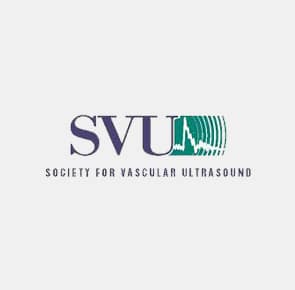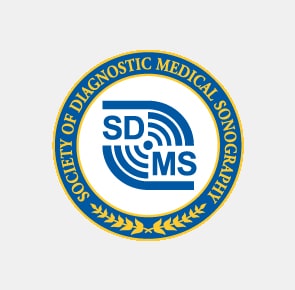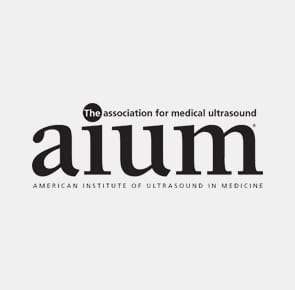Get Matched With Colleges
What Does an Ultrasound Technician Career Entail?
If you are looking for a new career, or if you're starting out in the job market, the healthcare industry is one to strongly consider. The Bureau of Labor Statistics shows near universal job growth for the whole sector, and you can start a brilliant career as an ultrasound technician with a two-year Associate’s Degree.
An ultrasound technician's career entails long hours assisting doctors with their diagnostics and other procedures. They are trained to use ultrasound technology to generate images of patients' organs and even fetuses. In fact, the most prominent setting for an ultrasound technician is in the office of an OB/GYN. However, their skills are also needed to take images of muscles, tendons, and nerves, in addition to other body parts. Since X-rays are being deprecated in medicine, there is an increased demand for Ultrasound Technicians.
Ultrasound technicians, also known as Sonographers, enjoy careers that are quite diversified. That is, they can choose to settle in to one specialty area, such as taking fetal images, or they can switch to another focus area, such as sports medicine. While sonographers don't usually need state licensure, they do need a degree, and usually a professional certification to land the best jobs and salaries.
How to Become an Ultrasound Technician
What Does an Ultrasound Technician Do?
An ultrasound technician takes internal imagery of patient organs, fetuses, as well as muscles, tendons, and nerves. They are specially trained to read the images and describe to the patients what is on screen. Sonographers are most often thought of as taking ultrasound imagery for expecting parents who desire to know the sex of their child.
If you wish to pursue ultrasound training through a trade or technical school, you will likely need a minimum of a high school diploma. Many schools also accept equivalency exam scores, such as the GED.
Typical Ultrasound Technician Certifications Needed

Find Online Ultrasound Programs
Academic Standards for an Ultrasound Technician Degree/Certification
To graduate with a degree or certificate, ultrasound technicians need to maintain the highest academic standards. While many programs will allow you to maintain enrollment with a C average, you will want to strive for a high B or an A in all coursework.
In fact, many 2-year degree programs ask that you apply for their medical imaging degree track. These programs will have prerequisite courses that you must pass with a C or better, but you’ll still need to strive for the best grades possible. After all, this field is in high demand, so you need to do the best you can to ensure you gain a position.
Exam/Experience Needed for an Ultrasound Technician Degree/Certification
You don't need any specific experience to study for a degree or certification. However, to take a certification exam you will need to have completed your program. Since the field isn't regulated by the government, you don't need to satisfy any other requirements for your professional certificate.
Ultrasound Technician Degree & Certification Options
To be an Ultrasound Technician, you have a number of training options. You could take a one-year course and start working relatively quickly. On the other hand, you could work towards either an online bachelor's or online associate's degree.
While a one-year certificate program will allow you to dive into the field with little delay, you will be better served over the long-run if you complete either a two- or four-year degree program.
That is because both online associates and bachelor's degree programs will provide a more well-rounded and thorough education. Generally speaking, the more education you achieve, the more responsibilities you can handle and thus the higher salary you are able to command. For instance, you could augment your Sonography courses with a minor in biology, pre-med, healthcare administration, accounting, or management, which will benefit you over the long term.
Furthermore, when you take more time for a full online degree program, you will be able to study your field in more depth. You can take more anatomy courses or other biology classes that will deepen your knowledge of the human body and its functions. This deeper knowledge will reflect very well when you are applying for jobs.
Primary Types of Ultrasound Technician programs:
Abdomen:
If you focus on this area, you will learn all about the abdominal organs: spleen, kidneys, gallbladder, liver, and pancreas. Your diagnostics will help doctors ascertain whether a patient has certain conditions such as blood clots, abdominal fluid, gallstones, kidney stones, liver cancer, or appendicitis, among other conditions.
You might also be called to assist in minor surgeries. Your ultrasound guidance will help the doctor retrieve a tissue in a biopsy procedure.
Breast:
Ultrasound technology is a great option for women who are unable, or ill-advised for exposure to radiation imaging technology. Thus, you will help doctors examine a woman's breasts when she is pregnant, nursing, under 25, or if she has silicone implants.
Your ultrasound examination will help determine whether a breast lump is a malignant cancer, benign lump, fibrocystic masses, intraductal papilloma, or necrotic mammary fat. Given the nature of breast cancer, your work might help save the lives of many, many women.
Fetal Echocardiography:
This is a specialty that is closely related to ultrasound but is a separate procedure. In fact, the echocardiogram is called upon when an ultrasound yields inconclusive results, specifically related to fetal heart development. The doctor may also call for this procedure when the ultrasound shows cardiac abnormalities or if the fetus is otherwise in a high-risk group. For instance, a fetus may have a family history of heart disease, the mother may have used alcohol or dangerous drugs including prescriptions, or if the mother has a condition that could impact fetal health.
Obstetrics & Gynecology:
In this specialty area, you will learn to perform pelvic ultrasounds to help the doctor assess and diagnose the relative health of a woman's cervix, fallopian tubes, ovaries, uterus, vagina, and bladder.
Pediatric Sonography:
If you love working with children, this is a fantastic way to help promote pediatric health with non-invasive, non-harmful ultrasounds that help diagnose issues in a child's abdominal cavity. You will learn to take and read images that detail a child's circulatory system and abdominal organs.
Adult Echocardiography:
In this specialty, you will "look" at how adult hearts function by examining how sound wave echo off that organ. This special type of ultrasound can help assess patients who might have minor or severe complaints regarding their heart or circulation. It can also be used as part of a comprehensive physical exam.
Pediatric Echocardiography:
Children who may have heart problems need echocardiograms. They may have heart murmurs, birth defects, or other conditions. Hopefully they are in perfect health. If not, your work will help the doctor diagnose and treat problems before they advance any further.
Vascular Technology:
In this specialty, you will take images of a body's veins, arteries, capillaries, lymph vessels, and lymph nodes. You will look for blockage that can lead to heart attack, clots that lead to stroke, and problems that lead to lymphoma.
Musculoskeletal:
Ultrasound technology is also helpful in assessing problems related to the musculoskeletal system. You will assess muscles, tendons, ligaments, and even nerves to help the doctor assess injury and disease.
Find Your Program
Potential Careers & Salaries for Ultrasound Technician Graduates
There are two main factors that contribute to how well you are compensated for a job: degree and experience. With each, the more you have, the better you are paid. However, your degree will often be a deciding factor in your compensation. That is, your salary potential rises when you move up from a certificate to an associate's degree to a full four-year degree. Your degree will also be a determining factor in the level of responsibility and status you can attain in a healthcare organization.
Ultrasound Technician Median Salaries by Occupation
| Occupation | Entry-Level | Mid-Career | Late-Career |
|---|---|---|---|
| Cardiovascular Technologist | $47,000 | $65,900 | $81,600 |
| Radiation Therapist | $62,100 | $76,900 | $90,900 |
| Radiologic and MRI Technologists | $45,600 | $51,700 | $59,900 |
| Medical Lab Technician | $40,100 | $44,000 | $52,300 |
| Medical Assistant | $30,800 | $34,800 | $39,500 |
Important Questions to Ask
How long does it take to earn an Ultrasound Technician Degree or Certification?

How much does an Online Ultrasound Technician Trade School Degree cost?
For a basic ultrasound certificate, a one-year program from a trade school shouldn't cost you any more than $5,000 and often far less. However, if you seek a certificate in a highly specialized field, such as Vascular Ultrasound, the cost could be as much as $35,000.
While cost is always a practical concern, if a program has a better reputation and costs a bit more, the extra expense may be worth it in the long run. Always factor in considerations such as the specialty area, future salary, reputation, accreditation, and alumni success.
How many students graduate “on time,” in 12 months or 24 months?
On-time graduation rates are not always tracked for 1 or 2-year programs. However, the results from research on bachelor's degree programs indicates that your chances of graduating in a timely fashion increase in accordance with the relative competitiveness of your program. It's also been shown that women are more likely to graduate on time than their male counterparts. There is also the fact that programs are set up with the expectation that students will take a full course load each semester. If you take your courses part-time, you will have a hard time graduating within the expected time frame.
What kind of accreditation does the online program hold? How is it regarded in the field?
Accreditation is an issue that should be on your mind when you are seeking an online degree program. Regional accreditation is a minimum standard for your education. However, since this education will launch your career, you might instead wish to seek a national certification. In particular, an accreditation from the Commission on Accreditation of Allied Health Education Programs (CAAHEP) will assure that your education is the very best. If you cannot find a local program with this accreditation, look for a CAAHEP accredited program online.
Find Your Program
Software, Technology & Skills Needed
To study for your degree or certificate in ultrasound sonography, you won't need any specific skills. However, some courses might require that you have taken certain biology courses, such as Anatomy and Physiology. You should also have basic computer skills and an overall familiarity and comfort level when working with technology.
Scholarships
-
Aaron S. White Educational Grant
Amount: $2,500 (2 Awards)
Deadline: December 31
This grant fund is run through Cardiovascular Credentialing International and awards the winner with $2,500. You will need to provide a letter that verifies that you are a student of cardiovascular science or technology in good standing, a personal essay, and a personal letter of reference from an employer or educator.
-
SDMS Foundation Sonography Student Scholarship Program
Amount: $2,500 (2 Awards)
Deadline: June 30 (Fall); December 31 (Spring)
This scholarship awards $2,500 to two students who are pursuing a career in Sonography. Your school must be CAAHEP accredited and you should be an enrolled student in good standing.
-
Anne Jones Scholarship
Amount: $2,500 (1 Award); $1,000 (3 Awards)
Deadline: March 1
The Society for Vascular Ultrasound runs the Anne Jones Fund which can award you up to $2,500 towards your education. Your program must be CAAHEP accredited and you should be an enrolled student in good standing with a cumulative GPA at or above 3.5.
Professional Organizations
- SVU
- SDMS
- AIUM

SVU
Society for Vascular Ultrasound
If you are a member of this proud, dedicated profession, you should join the SVU. If you are a student, you can join for a mere $35 and technologists receive benefits with $155 dues. Included in the technologists' membership are loads of educational opportunities. With so many CME units available at no additional cost, the membership virtually pays for itself.

SDMS
Society of Diagnostic Medical Sonography
Your membership fees will provide access to a range of benefits that include group discounts on Professional Liability Insurance, access to grants and scholarships, and a network of sonography professionals. There are also resources related to salary, job opportunities, and more.

AIUM
American Institute of Ultrasound in Medicine
The AIUM supports a wide range of specialty areas under the umbrella of ultrasound. As such, they revel in their interdisciplinary approach and provide vast resources for professionals.
Choosing an Accredited Ultrasound Technician Vocational School
It is very important to attend an accredited vocational school for your certificate or degree. While a regional accreditation is valid, you should seek a program that is accredited through CAAHEP. Schools that boast that accreditation are generally well-respected and employers look for them when they hire new sonographers.
Online vs On-Campus vs Hybrid if Available
Whether you choose online, on-campus, or a hybrid program will mostly depend on your daily scheduling needs. If you choose an online or hybrid program, make sure that you can dedicate time every single day so that you stay on top of your studies. You should also discuss how your online program will support your efforts to secure employment in your local area.
Additional Questions
Does the Vocational School Have Post-Graduate Job Placement Assistance?
When you attend a vocational school, you do so for the express purpose of landing a job in your chosen field. Thus, you need to think about how your potential school will support your employment efforts. You might ask if they support students in seeking internships or if there are regular job fairs. If you are exclusively taking online courses, discuss how your remote, virtual campus will support your local employment efforts.
Why You Need to Consider the Overall National Rankings of the School and The Effects on Your Career or Salary
Ultimately, you want to attend the very best-ranked sonography program that you can. These rankings, though not the be-al-end-all in helping you decide which school to attend, do pay attention to details that affect student experience and future success. Employers are aware of these rankings and may take them into consideration when deciding to hire you from a pool of otherwise capable candidates.
